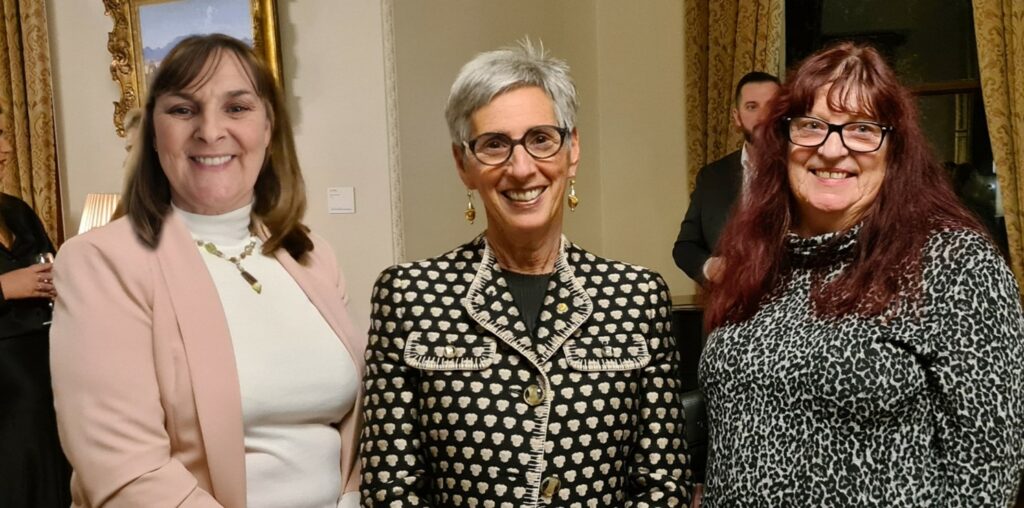In early May, Centre Manager of the Eaglehawk & Kangaroo Flat Community Houses, Tracey Moss, was invited by the Governor of Victoria, The Honorable Linda Dessau AC, to visit Government House in Melbourne to help celebrate Foodbank Victoria’s 90th Anniversary and acknowledge they have stood by vulnerable Victorians, facilitating healthy food for all with dignity and respect.
Tracey’s invitation was presented in recognition of her work addressing food insecurity in our region and acknowledged the partnership between Foodbank Victoria and the Eaglehawk Community House. This partnership has now progressed to include the Kangaroo Flat Community House. Jenny from Bendigo Family Financial Services also attended the celebration with Tracey. They are another local frontline Agency delivering great work.
Tracey says, “It is heartbreaking to understand that people in this modern era are going without food”. Foodbank Victoria states that in 2021, one in six Australian adults did not have enough to eat.
Food insecurity doesn’t just target the homeless or disadvantaged, nor is there only one reason why people experience food insecurity. Food recipients are everyday people who have fallen on hard times. Many are hard-working people with families, farming communities hit by drought or other disasters, and students who have relocated and are trying to make ends meet. At Eaglehawk, we are seeing a rise again this year in people needing our assistance, many due to the hardship of current rising living costs such as homelessness, mortgages/rents, groceries, fuel, utilities, etc.
Neighbourhood & Community Houses have a unique way of working with the people seeking our support. It’s about welfare checks, connecting in a time of need, assisting through care and conversation, building relationships and ensuring people understand they are not alone.
We call it a ‘hand up’ – not a ‘hand out’.
For the majority of people, seeking support is not ongoing. We see Very few faces over and over, and most often, it’s simply providing assistance to ease the pressure on someone’s situation and allow them time to breathe. But it is also important to have limits, to refer and connect people with major organisations who can provide higher support. Bendigo Family Financial Services visit the Eaglehawk Community House once every month and are available for appointments locally.
And in these ways, we hope to minimise those that fall through the cracks.
We can’t assume people know where to go for support, especially food relief.
Sometimes people don’t know where to go simply because it’s something they have never faced. As Agencies, we need to get louder with our messages, and we are working closely with our peak body, Neighbourhood Houses Victoria, Government and the local Council for increased awareness and support, particularly funding for equipment, storage facilities and ongoing costs. We can’t afford to lose our Agencies on the frontline due to a lack of the essential support we need to continue.
We also need to change our views and understanding of food insecurity. Often, the stigma prevents someone from reaching out and seeking assistance. People feel there is someone worse off than them, that if they pay this next bill, they will be through the worst of it, and that if they are successful with their latest job application submitted, things will be fine.
But it’s not just about handing out food; the support can’t end there.
We are responsible for empowering people and sharing our knowledge and skills, aiming for individuals to make appropriate food choices to improve their health and well-being.
Some people have never cooked a meal and suddenly find themselves on their own. Others have no family, no friends or support networks around them. Many people need to learn what foods to seek or purchase and how to prepare them for eating.
At Eaglehawk, we are seeing a rise in the number of people connecting to volunteer. And the reason for this is that they have received our assistance in the past, which is their way of giving back. But they also know that through their commitment, they are, in turn, assisting others that need support, just like they may have been in the past.

